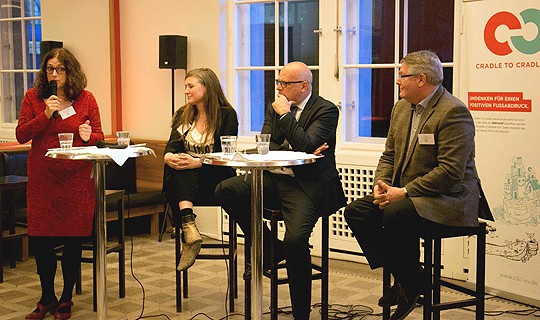By Cradle to Cradle e.V. – slightly amended, slightly shortened and with many thanks!
After having served its intended purpose for several years a well-loved denim jacket is laid to rest as compost, thereby remaining in the natural cycle in the form of nutrients. The metallic buttons meanwhile are repurposed as a new raw material in the technical cycle – nothing is lost!
This is what the future of our clothes could look like under the Cradle to Cradle concept. Successes that the concept can already take credit for in the garment sector, innovative ideas that only wait for their realisation and stumbling blocks that still remain – those were the topics at the expert forum #2 “textiles – cycles – procurement – supply chains” at the Sarah Wiener Restaurant in Berlin. It was one of a series of industry-specific events that aim to bring together practitioners from society, business as well as politics.
Experts from fields including the garment industry, fashion design, politics, consulting and research debated topics such as healthy textiles, material cycles and transparent supply chains. The challenges surrounding homogenous separation of natural and artificial materials as well as their return to the natural and the technical cycles were on the agenda, as was the basic application of healthy materials. Opening the meeting, Monika Griefahn stressed the significance of the garment sector as it is a daily part of everyone’s lives. Cradle to Cradle, she said, stood for health, quality and especially for cycles.
Rita Schwarzelühr-Sutter, Parliamentary State Secretary at Germany’s Federal Ministry for the Environment, Nature Conservation, Building and Nuclear Safety, said the textile industry was one of the industries with the highest turnovers and outlined the German government’s political objectives: by the year 2020 half of all textiles procured for the public sector must adhere to sustainability standards. She emphasised the public sector’s special function as a role model in this regard.
Designer Friederike von Wedel-Parlow described the poignant experiences she made at the Paris Fashion Week, which inspired her to come up with new concepts for create clothes. Once she came upon the Cradle to Cradle idea, she began realising it in creative ways with her master students in her role as professor for a course in “Sustainable Design Strategies” at the ESMOD Berlin International Academy of Fashion. In the autumn of 2016 she founded the “Beneficial Design Institute” where together with different companies she’s been working to achieve market maturity for different Cradle to Cradle products. She said it was the responsibility of future consumers to learn how to pass the garments on to the appropriate recipients.
Albin Kälin, founder and director of EPEA Switzerland GmbH, brought several practical examples from his work for different companies from the garment industry. For instance he used a bra to demonstrate the necessity of rethinking textiles because, he said, “with its different components a bra is a cocktail of chemicals.” He added that it was a challenge to find healthy alternatives to the materials used previously and to feed them back into their respective cycles homogenously. He said the Wolford products for 2018 that had recently been unveiled in Paris were a step in the right direction.
Volker Steidel, executive partner at Lauffenmühle, a manufacturer of yarns and fabrics, used the story of his product infinito to show how much creative effort can go into developing materials that represent real solutions. Already Infinito, a polymer fibre that is biologically recyclable, could be used to make great products that would adhere to Cradle to Cradle standards. Steidel also stressed the importance of transparency “from the fibre to the final product”. He said the work clothes used in his own company were produced under Cradle to Cradle criteria and were especially suitable for being recycled.
After the debate the guests engaged in another important activity – enjoy dinner and continue the discussion in direct conversation. Company representatives met individual attendees including staff from the Federal Ministry for Development and the Federal Ministry for the Environment, designers, representatives of several different C2C enterprises as well as decision-makers from various institutions and companies.
A third expert forum is already being planned, which, on a forthcoming date in the summer, will likely focus on the topic of packaging.

 Monika Griefahn GmbH
Monika Griefahn GmbH
Leave a Reply